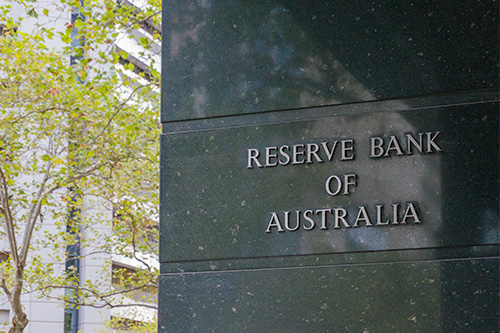
The Reserve Bank of Australia (RBA) has decided to keep the cash rate target at its record-low of 0.1% this month.
While the central bank has not moved the needle on the cash rate since November last year, the environment appears to be slowly changing as plans of possible lending crackdown surface.
CreditorWatch chief economist Harley Dale said the approaching reintroduction of lending restrictions for residential property will likely impact the decision of the central bank in the coming months.
"The RBA has been noting upward pressure on property prices and housing affordability for a considerable time and will now be upping the ante," Mr Dale said.
"Due to the combination of easing lockdown restrictions and tighter lending conditions, the RBA faces a different dynamic in coming months than has been seen over 2021 to date."
However Mr Dale said if current circumstances are considered, it appears the RBA might keep the cash rate at its record low until 2024.
"This environment will be very beneficial for businesses and households as they look towards the hopeful easing of lockdown restrictions in late October or early November," he said.
"The highly stimulatory monetary policy climate will also be crucial in moving through the inevitable bumpiness and uncertainty of a post-lockdown economy. This is something the RBA will be keeping a keen eye on."
Indeed APAC economist Callam Pickering shared similar insights on house prices, adding that the sharp rise in both owner-occupier and investor lending is a reflection of the growing concerns about lending activity.
RBA's statement
In his monetary policy decision statement, RBA Governor Philip Lowe said the setback to Australia's economic growth due to the pandemic is only temrporary. However, concerns on wage growth and inflation remain.
"The Board is committed to maintaining highly supportive monetary conditions to achieve a return to full employment in Australia and inflation consistent with the target," he said.
Mr Lowe said Australia is unlikely to meet these targets before 2024 as it would require the labour market to be tight enough to result in material gains in wages.
"The central scenario for the economy is that this condition will not be met before 2024," he said.
Mr Lowe also mentioned the uptrend in house prices, which is the main driver of housing credit growth.
"The Council of Financial Regulators has been discussing the medium-term risks to macroeconomic stability of rapid credit growth at a time of historically low interest rates," he said.
"In this environment, it is important that lending standards are maintained and that loan serviceability buffers are appropriate."
Collections: Mortgage News



Share